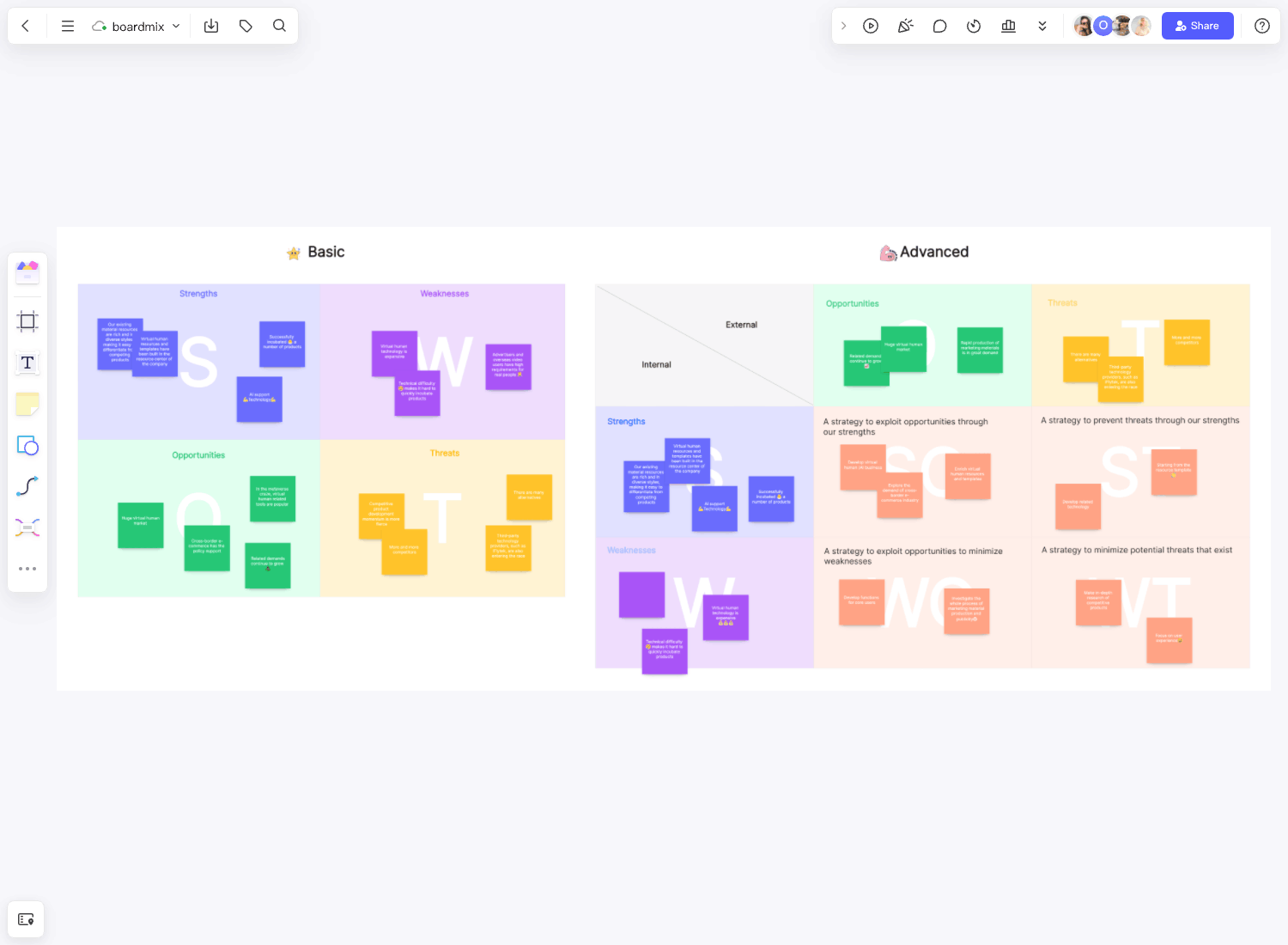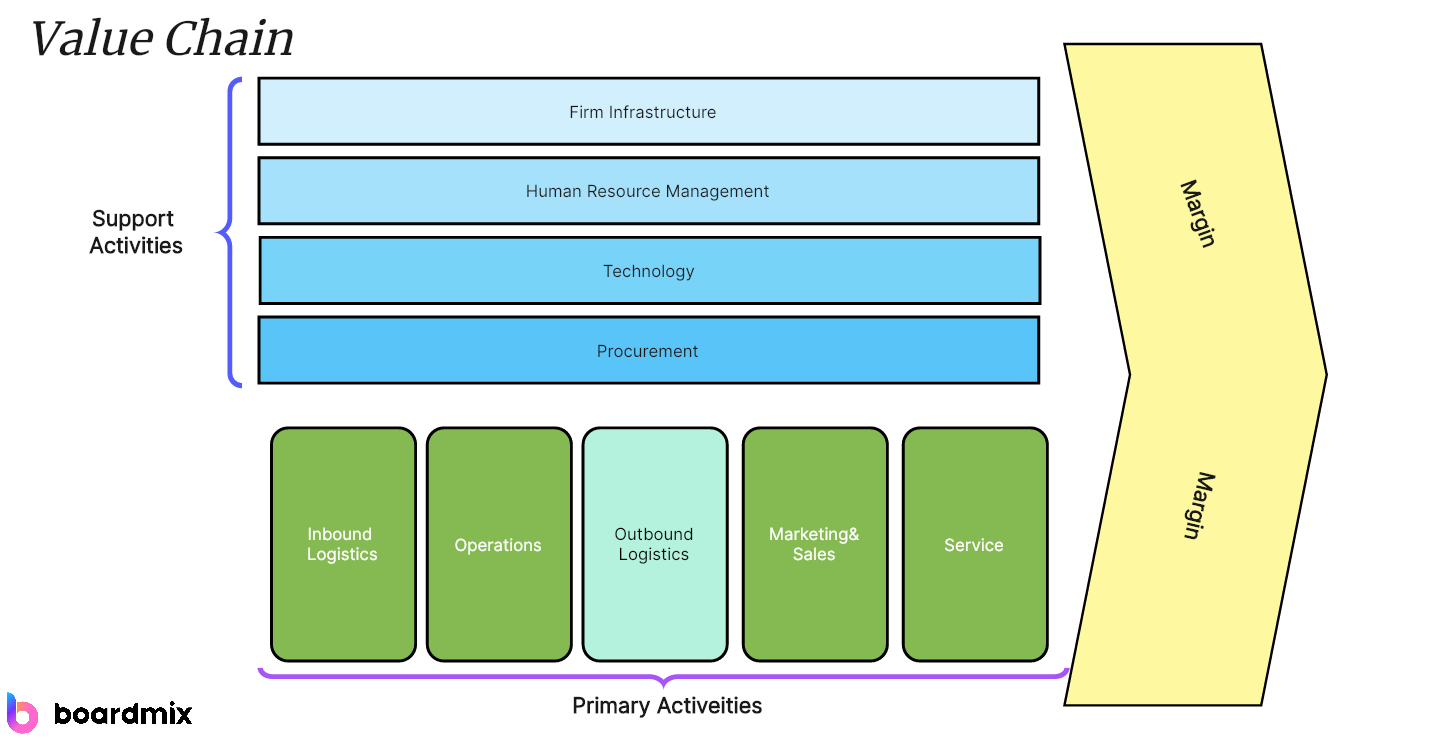Coca-Cola, a global beverage powerhouse, has dominated the market for over a century. Understanding the external factors that impact its operations is crucial for sustained success. This article delves into a detailed Coca-Cola PESTLE analysis, shedding light on the political, economic, social, technological, environmental, and legal aspects that shape Coca-Cola's strategies. Keep reading.
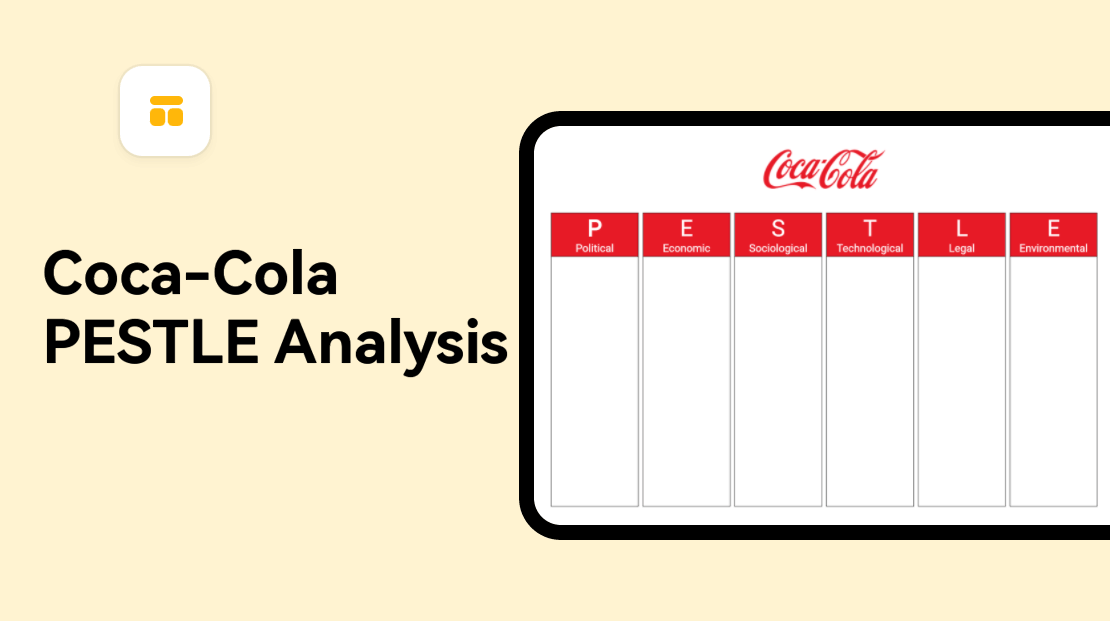
What Is the PESTLE Analysis
In the realm of strategic analysis, the PESTLE framework stands tall as a beacon of insight. Picture it as a navigational compass for businesses, illuminating the external factors that influence their journey. This acronym, which stands for Political, Economic, Social, Technological, Environmental, and Legal, is akin to a multifaceted prism, refracting the spectrum of influences that shape an organization's strategies. Let's embark on a journey through each facet of this illuminating tool.
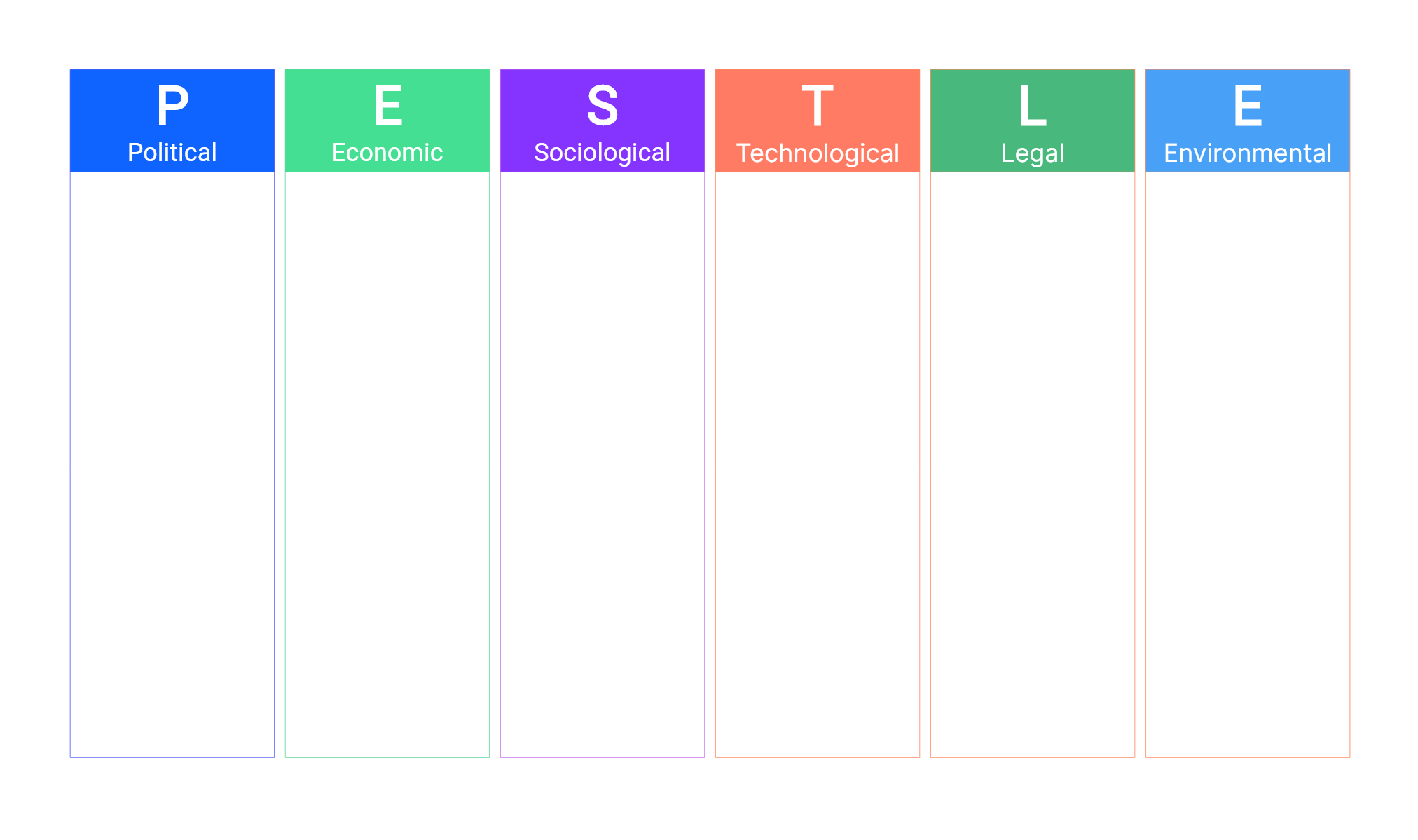
Basic Info of Coca-Cola
Founded in 1886, Coca-Cola stands as an iconic name in the global beverage industry. With a rich history spanning over a century, it has cemented its position as the leading non-alcoholic beverage company worldwide. The brand's expansive portfolio includes cherished classics like Coca-Cola, alongside a diverse range of offerings that cater to a multitude of tastes and preferences.

Operating in over 200 countries, Coca-Cola has woven itself into the fabric of cultures worldwide. Its presence extends far beyond the refreshing taste of its beverages; it represents a legacy of quality, innovation, and a commitment to satisfying the thirst of consumers across the globe. With this enduring legacy, Coca-Cola continues to shape the beverage industry, setting the standard for excellence and taste.
Coca-Cola PESTLE Analysis
Here’s the detailed description of Coca-Cola PESTLE analysis:
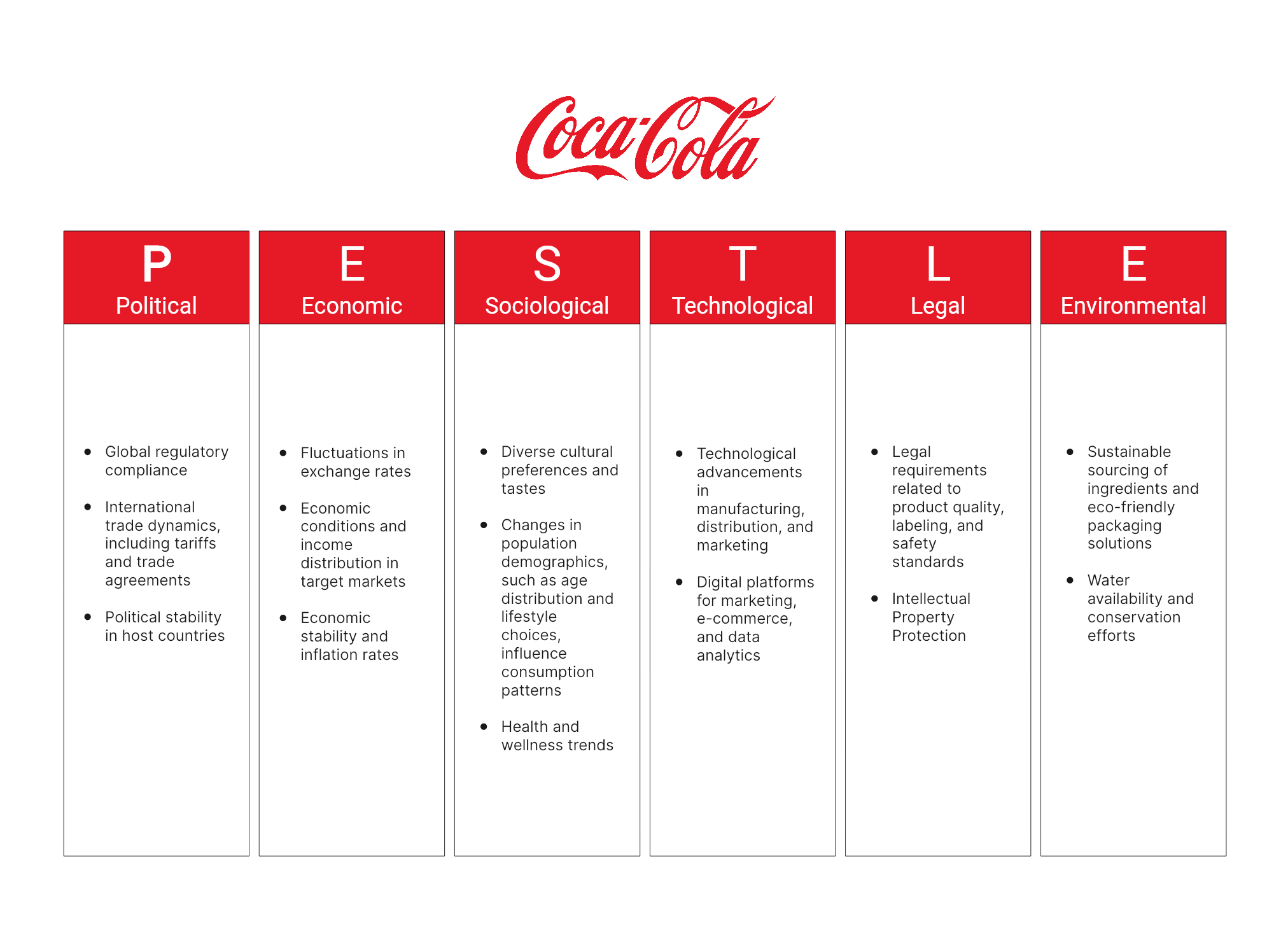
Political Factors
- Global Regulatory Compliance: Coca-Cola's expansive global presence necessitates meticulous adherence to diverse political regulations and policies in each market.
- Trade Agreements and Tariffs: International trade dynamics, including tariffs and trade agreements, can impact Coca-Cola's cost structures and profitability in different regions.
- Government Stability: Political stability in host countries is crucial for smooth operations and long-term investments.
Economic Factors
- Currency Exchange Rates: Fluctuations in exchange rates can affect Coca-Cola's revenue and profitability, especially given its extensive international operations.
- Consumer Income Levels: Economic conditions and income distribution in target markets influence consumer purchasing power and demand for Coca-Cola products.
- Inflation and Cost of Goods: Economic stability and inflation rates directly impact production costs, pricing strategies, and profit margins.
Social Factors
- Cultural Preferences: Understanding diverse cultural preferences and tastes is essential for tailoring marketing strategies and product offerings to resonate with local consumers.
- Demographic Trends: Changes in population demographics, such as age distribution and lifestyle choices, influence consumption patterns and market demand.
- Health and Wellness Trends: Evolving consumer attitudes towards health and wellness impact demand for beverage categories, influencing Coca-Cola's product portfolio.
Technological Factors
- Innovation and Automation: Embracing technological advancements in manufacturing, distribution, and marketing allows Coca-Cola to enhance efficiency and maintain competitiveness.
- Digital Transformation: Leveraging digital platforms for marketing, e-commerce, and data analytics enables Coca-Cola to connect with consumers and gain valuable insights.
Environmental Factors
- Sustainable Sourcing and Packaging: Environmental consciousness drives the need for sustainable sourcing of ingredients and eco-friendly packaging solutions, aligning with consumer expectations.
- Water Management: Given the nature of its products, water availability and conservation efforts are critical considerations for Coca-Cola's operations.
Legal Factors
- Regulatory Compliance: Meeting legal requirements related to product quality, labeling, and safety standards is fundamental to preserving Coca-Cola's reputation and brand integrity.
- Intellectual Property Protection: Safeguarding trademarks and patents ensures the exclusivity and integrity of Coca-Cola's iconic brands and innovations.
Insights from the PESTLE Analysis for Coca-Cola
The insights from PESTEL analysis for Coca-Cola is as follow:
Market Entry Strategies
In light of political stability and economic growth indicators, Coca-Cola can strategically plan its market entries. This involves a meticulous assessment of political climates in potential markets, considering factors like government stability, trade policies, and regulatory frameworks. Economic indicators such as GDP growth rates, inflation, and consumer income levels play a pivotal role in identifying regions with robust market potential. By scrutinizing these aspects, Coca-Cola can allocate resources effectively, ensuring a seamless entry and sustained presence in high-potential markets.
Consumer-Centric Adaptations
Understanding social trends offers invaluable insights into consumer behavior and preferences. This entails a deep dive into cultural nuances, lifestyle choices, and shifting consumer values. For instance, recognizing the growing trend towards health-conscious choices, Coca-Cola may invest in the development and promotion of low-sugar or healthier beverage alternatives. Additionally, cultural sensitivities guide marketing campaigns, ensuring they resonate positively with diverse consumer demographics.
Technological Synergies
Technological advancements are integral to Coca-Cola's operational excellence and innovation efforts. Embracing automation and cutting-edge manufacturing technologies not only enhances production efficiency but also allows for the introduction of new products or packaging solutions. Furthermore, the integration of digital technologies in marketing and distribution channels provides avenues for direct consumer engagement, data-driven insights, and targeted advertising campaigns.
Sustainability Imperative
With increasing global awareness of environmental issues, Coca-Cola's commitment to sustainability is paramount. This involves sustainable sourcing practices for ingredients, minimizing environmental impact during production, and adopting eco-friendly packaging solutions. Furthermore, the company's efforts towards water conservation and efficient usage align with global sustainability goals. By prioritizing these initiatives, Coca-Cola not only fulfills its corporate social responsibility but also resonates with environmentally conscious consumers.
Legal Guardianship
Compliance with legal standards is non-negotiable for Coca-Cola. This encompasses stringent adherence to quality standards, labeling regulations, and safety protocols in all markets of operation. Additionally, protecting intellectual property rights ensures the exclusivity and integrity of Coca-Cola's iconic brands. Vigilance in legal matters not only safeguards the company's reputation but also builds and maintains trust with consumers and stakeholders.
Key Takeaway: A One-stop Tool for PESTLE Analysis
The Coca-Cola PESTLE analysis serves as a powerful tool for assessing external influences on Coca-Cola's business operations. By strategically addressing these factors, the company can navigate challenges and capitalize on opportunities for sustained growth.
To make the process more seamless, try Boardmix, an online collaborative whiteabord tool that owns various ready-made templates that facilitate your research and analysis.
Features of Making PESTLE Analysis on Boardmix
Boardmix's digital whiteboard provides an excellent platform for creating dynamic and engaging PESTLE analyses. PESTLE analysis - an acronym for Political, Economic, Social, Technological, Legal, and Environmental factors - is a strategic tool used to understand the macro-environmental factors that affect an organization. With its variety of features and intuitive interface, Boardmix is an ideal tool for this kind of strategic analysis. Here are some notable features that make Boardmix an effective platform for PESTLE analysis.
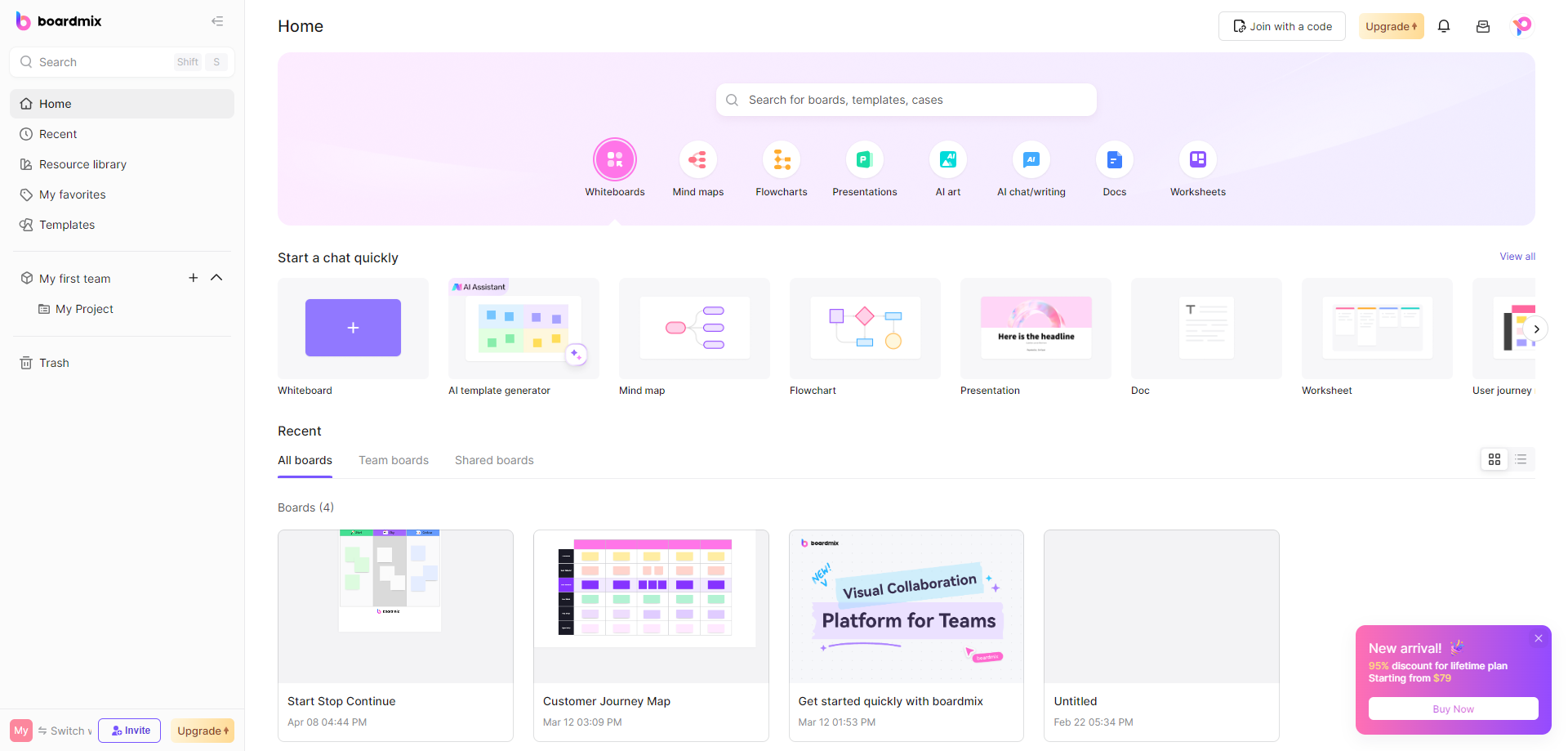
1. Interactive Whiteboard Interface
The interactive whiteboard is a powerful tool for visualizing your PESTLE analysis. You can draw, write, erase, and move elements freely on the board, allowing for dynamic interaction with your analysis.
2. Collaborative Tools
Boardmix allows multiple users to work together on a single whiteboard in real time. This means you can collaborate with your team members on the same PESTLE analysis simultaneously, allowing for real-time brainstorming and discussion.
3. Multimedia Integration
With Boardmix, you can enrich your PESTLE analysis by integrating multimedia elements directly onto the whiteboard. These could include relevant news articles, video clips, data visualizations, and other resources that provide additional context and depth to your analysis.
4. AI-Assisted Idea Generation
One of Boardmix's standout features is its AI enhancement, which can suggest related concepts or ideas based on your input. This can be particularly useful in a PESTLE analysis to uncover hidden correlations or potential impacts that might not be immediately apparent.
5. Drag-and-Drop Functionality
Boardmix’s drag-and-drop feature allows you to easily arrange and re-arrange elements on your PESTLE analysis. This allows you to create logical groupings or highlight specific relationships between different factors in your analysis.
6. Templates and Pre-made Resources
Boardmix offers a variety of pre-made templates and resources that can expedite the creation of your PESTLE analysis. You can choose a template that best fits your needs and customize it as required.
7. Cloud Storage and Accessibility
Boardmix stores all your whiteboards securely in the cloud, ensuring you can access and continue your work from anywhere and at any time. Furthermore, as a web-based platform, Boardmix is compatible with a wide range of devices, making it a versatile tool for remote or distributed teams.

By leveraging these features, Boardmix offers an effective platform for conducting comprehensive PESTLE analyses. Whether you're brainstorming in real-time with your team, integrating multimedia elements for deeper insights, or leveraging AI for idea generation, Boardmix's dynamic environment makes the strategic planning process more efficient and collaborative.To ease the task, you can take use of a one-stop tool called Boardmix. Just give it a try!











